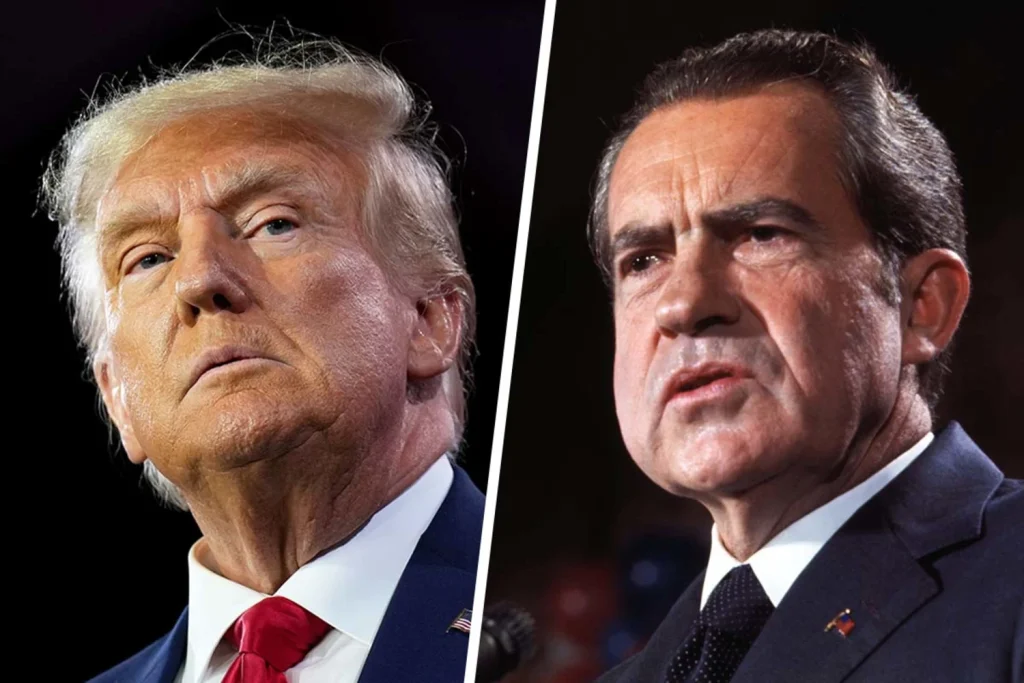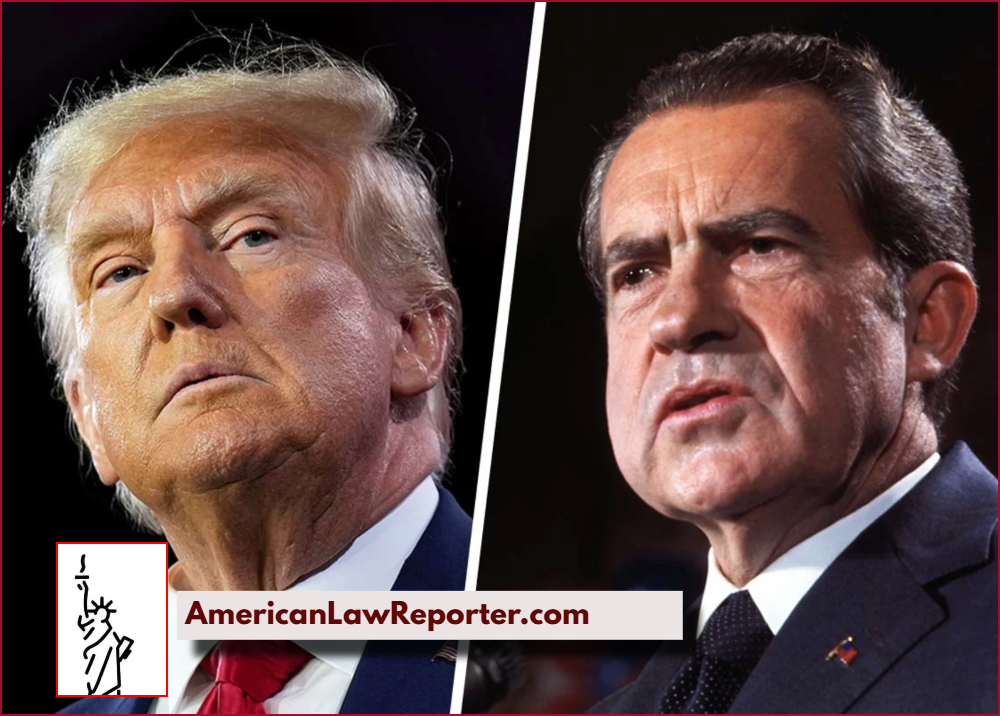In 1974, President Richard Nixon resigned amid the Watergate scandal, a constitutional crisis that tested the resilience of American democracy.
Fast forward to 2025, President Donald Trump’s administration is embroiled in a series of controversies that some legal scholars argue present even more profound challenges to the nation’s legal and constitutional frameworks.
This essay examines the parallels and divergences between the Nixon and Trump administrations, with a skew on their respective legal controversies and the implications for the rule of law in the United States.

Executive Overreach and the Rule of Law
Nixon’s Era: The Watergate scandal centered on the Nixon administration’s attempts to cover up a break-in at the Democratic National Committee headquarters. The ensuing investigation revealed abuses of power, leading to Nixon’s resignation. The crisis underscored the importance of checks and balances and led to reforms aimed at increasing transparency and accountability in government.
Trump’s 2025 Administration: President Trump’s second term has been marked by aggressive actions that have raised concerns about executive overreach. Notably, the administration’s attempt to dismantle the U.S. Department of Education was blocked by a federal appeals court, which ruled that such a move required congressional approval . Additionally, the mass dismissal of inspectors general across various federal agencies has been criticized as an attack on government oversight mechanisms.
Civil Service Protections and Institutional Integrity
Nixon’s Era: While the Nixon administration did engage in questionable practices, it largely operated within the existing civil service framework. The post-Watergate reforms aimed to strengthen institutional checks on executive power.
Trump’s 2025 Administration: The Trump administration’s efforts to fast-track the firing of federal employees accused of misconduct have been seen as undermining civil service protections. A new rule proposed by the Office of Personnel Management would allow for expedited terminations, raising concerns about due process and the politicization of the federal workforce . Furthermore, the administration’s actions have led to legal challenges, with courts suggesting that if oversight agencies are incapacitated, federal courts should assume authority to hear civil service disputes.
Diversity, Equity, and Inclusion (DEI) Initiatives
Nixon’s Era: During Nixon’s presidency, affirmative action policies began to take shape, aiming to address systemic inequalities. While controversial, these initiatives were part of a broader effort to promote civil rights.
Trump’s 2025 Administration: In contrast, the Trump administration has taken steps to dismantle DEI programs across the federal government. Executive Order 14173 revoked previous mandates requiring federal contractors to engage in affirmative action, effectively ending DEI initiatives within federal agencies . This move has sparked legal challenges from civil rights organizations, arguing that such actions infringe upon free speech and equal protection rights.
Legal Challenges and Judicial Responses
Nixon’s Era: The judiciary played a crucial role in the Watergate scandal, with the Supreme Court’s unanimous decision in United States v. Nixon compelling the president to release tape recordings, leading to his resignation.
Trump’s 2025 Administration: Similarly, the judiciary has been active in responding to the Trump administration’s actions. Federal courts have issued injunctions against the dismantling of the Department of Education and have ordered the reinstatement of AmeriCorps grants in multiple states . These judicial interventions underscore the ongoing tension between the executive branch and the judiciary in upholding the rule of law.
Conclusion
While both the Nixon and Trump administrations have faced significant legal and constitutional challenges, the scope and scale of the controversies under President Trump in 2025 suggest a more profound confrontation with the principles of democratic governance.
The aggressive dismantling of federal institutions, undermining of civil service protections, and rollback of civil rights initiatives represent a departure from the norms established in the post-Watergate era. As the judiciary continues to serve as a critical check on executive power, the resilience of American democracy remains under scrutiny.

